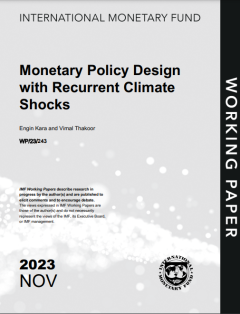Browse by:
Type
Sector
Country
- India (210)
- China (207)
- United States of America (127)
- South Africa (121)
- Indonesia (110)
- Brazil (98)
- Canada (93)
- United Kingdom of Great Britain and Northern Ireland (73)
- Bangladesh (69)
- Republic of Korea (66)
- Germany (62)
- Viet Nam (61)
- Kenya (60)
- Mexico (59)
- Japan (55)
- Philippines (50)
- Ethiopia (47)
- Australia (46)
- France (46)
- Rwanda (45)
- Ghana (43)
- Nepal (41)
- Thailand (41)
- Peru (38)
- Colombia (37)
- Denmark (36)
- Sweden (36)
- Uganda (35)
- Netherlands (33)
- Egypt (30)
- Norway (29)
- Chile (28)
- Cambodia (26)
- Malawi (26)
- Mauritius (26)
- Morocco (26)
- Nigeria (26)
- Mozambique (25)
- Malaysia (24)
- Myanmar (24)
- Spain (24)
- Türkiye (24)
- EU (23)
- Finland (23)
- Georgia (22)
- Italy (22)
- Tanzania (22)
- Uzbekistan (22)
- Kazakhstan (21)
- Senegal (21)
- Fiji (20)
- Costa Rica (19)
- Mongolia (19)
- Pakistan (19)
- Zambia (19)
- Burkina Faso (18)
- Republic of Moldova (18)
- Sri Lanka (18)
- Tunisia (18)
- Kyrgyzstan (17)
- Lao (17)
- Russia (17)
- Switzerland (17)
- Iceland (16)
- Jordan (16)
- Papua New Guinea (16)
- Poland (16)
- Argentina (15)
- Ecuador (15)
- New Zealand (15)
- Ukraine (15)
- Armenia (14)
- Samoa (14)
- Azerbaijan (13)
- Dominican Republic (13)
- Singapore (13)
- Vanuatu (13)
- Guatemala (12)
- Madagascar (12)
- Solomon Islands (12)
- Tajikistan (12)
- United Arab Emirates (12)
- Barbados (11)
- Bhutan (11)
- Palau (11)
- Timor-Leste (11)
- Albania (10)
- Estonia (10)
- Greece (10)
- Ireland (10)
- Kiribati (10)
- Lebanon (10)
- Sierra Leone (10)
- Bulgaria (9)
- Cote d'Ivoire (9)
- Guyana (9)
- Namibia (9)
- Nauru (9)
- North Macedonia (9)
- Saint Lucia (9)
- Saudi Arabia (9)
- Serbia (9)
- Uruguay (9)
- Belarus (8)
- Belgium (8)
- El Salvador (8)
- Jamaica (8)
- Mali (8)
- Marshall Islands (8)
- Romania (8)
- Seychelles (8)
- Tonga (8)
- Tuvalu (8)
- Austria (7)
- Bolivia (7)
- Botswana (7)
- Cameroon (7)
- Comoros (7)
- Cook Islands (7)
- Democratic Republic of the Congo (7)
- Grenada (7)
- Honduras (7)
- Hungary (7)
- Mauritania (7)
- Slovakia (7)
- Somalia (7)
- Zimbabwe (7)
- Afghanistan (6)
- Benin (6)
- Burundi (6)
- Congo (6)
- Cuba (6)
- European Union (6)
- Gambia (6)
- Guinea-Bissau (6)
- Iran (6)
- Latvia (6)
- Lesotho (6)
- Liberia (6)
- Lithuania (6)
- Niue (6)
- Portugal (6)
- Sudan (6)
- United States (6)
- Algeria (5)
- Antigua and Barbuda (5)
- Belize (5)
- Central African Republic (5)
- Croatia (5)
- Czech Republic (5)
- Gabon (5)
- Global (5)
- Guinea (5)
- Israel (5)
- Maldives (5)
- Nicaragua (5)
- Oman (5)
- Sao Tome and Principe (5)
- Togo (5)
- Yemen (5)
- Bahrain (4)
- Bosnia and Herzegovina (4)
- Cabo Verde (4)
- Democratic People's Republic of Korea (4)
- Djibouti (4)
- Dominica (4)
- Haiti (4)
- Iraq (4)
- Micronesia (4)
- Montenegro (4)
- Niger (4)
- Qatar (4)
- Slovenia (4)
- Trinidad and Tobago (4)
- Turkmenistan (4)
- Venezuela (4)
- Angola (3)
- Chad (3)
- Equatorial Guinea (3)
- Eritrea (3)
- Federated States of Micronesia (3)
- Kuwait (3)
- Libya (3)
- Luxembourg (3)
- Moldova (3)
- Panama (3)
- Saint Kitts and Nevis (3)
- Saint Vincent and the Grenadines (3)
- Swaziland (3)
- Bahamas (2)
- Brunei Darussalam (2)
- Cyprus (2)
- Paraguay (2)
- South Sudan (2)
- Syria (2)
- KwaZulu-Natal (1)
- Liechtenstein (1)
- Malta (1)
- Suriname (1)
Region
Theme
- Climate Change (1811)
- Natural Capital (615)
- Institutions and Governance (595)
- Development (500)
- COVID-19 (424)
- Risk and Resilience (410)
- Circular Economy (405)
- Trade and Supply Chains (365)
- Technology and Innovation (330)
- Indicators and Measurement (329)
- Standards and Regulations (317)
- Cities (312)
- Jobs (287)
- Poverty and Equity (271)
- Fiscal Instruments (225)
- Infrastructure (204)
- Consumption (181)
- Market Mechanisms (180)
- Gender (171)
- Investment (171)
- Health (81)
- Sustainable, Green, and Social Bonds (69)
- Government Procurement (62)
- Informal Economy (37)
Organisation:
International Monetary Fund (IMF)

As climate change intensifies, the frequency and severity of climate-induced disasters are expected to escalate. This IMF paper analyses the impact of these events on monetary policy.
The model described in the paper conceptualizes these disasters as left-tail productivity shocks with a quantified likelihood, leading to a skewed distribution of outcomes. This creates a significant trade-off for central banks, balancing increased inflation risks against reduced output.
Results suggest modifying the Taylor rule to give equal weight to responses to both inflation and output growth, indicating a gradual approach to climate-exacerbated economic fluctuations.
Regions :
Sectors :
Key search terms :
